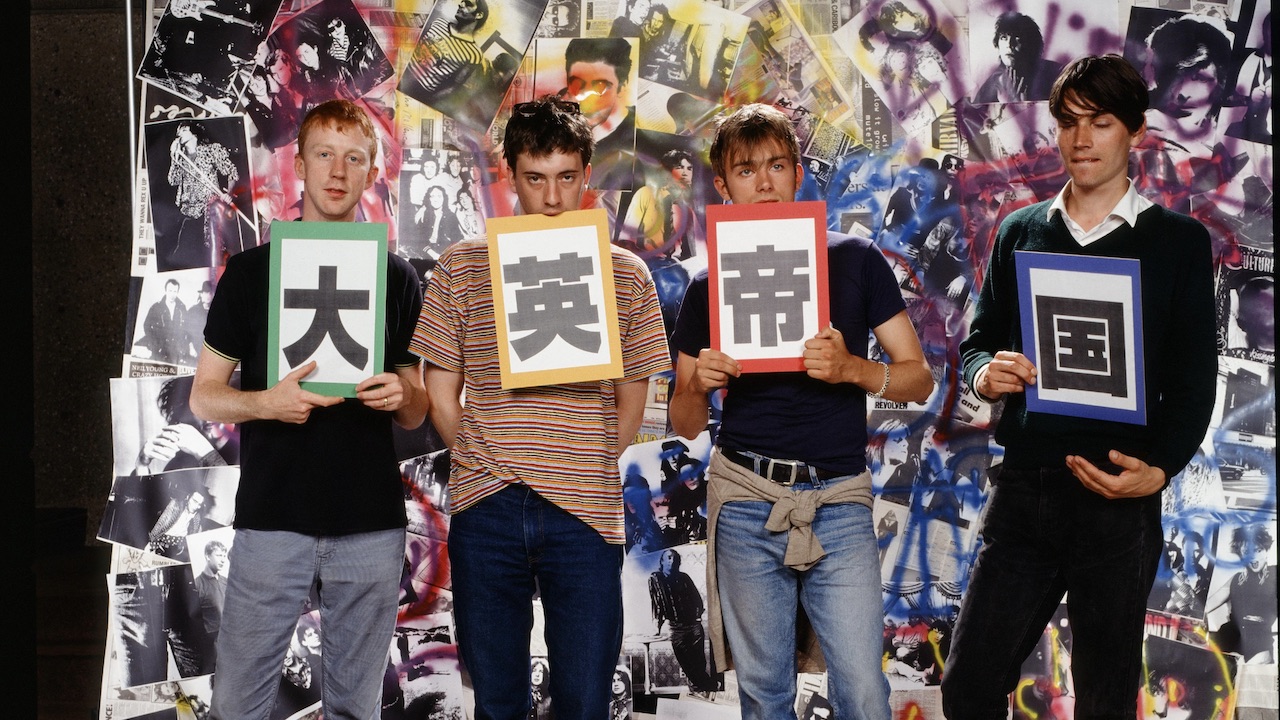By 1997, even Blur had had enough of BritPop.
Though Radiohead's OK Computer is often cited as the album that effectively killed off the genre, Blur's self-titled fifth album, released four months prior, saw Damon Albarn's band abandon the '90s Kinks' persona they had adopted on their previous three albums, and release a collection of songs that owed more to US indie rock. Guitarist Graham Coxon is generally credited as the driving force behind that switch, and in a new interview with MOJO magazine, Coxon admits that, at the time, he encouraged the band to "make a bloody row, and have fun."
"The Blur album was a bit like us walking up a road and seeing what’s up ahead and wanting to try another route before we’d gone too far, a route that was more difficult and challenging, a more worthwhile route for us as musicians. After [1995's] The Great Escape I decided to write a letter to Damon because I wasn’t confident enough to broach conversations about my needs. It was something like: 'I’d like to start scaring people again, because at the start, we were into unease, songs like Oily Water and Resigned. Let’s make a bloody row, and have fun'.
"I didn’t get much of a reaction, but Damon did give me the steering wheel a little more. I think he was sympathetic, and keen, for everyone to express themselves, and for me to have moments to mess around with noise."
For Coxon, the album's defining theme is that it "came from an authentic place".
"We felt forced into this strange Britpop thing," he says, "which we had nothing to do with, but I suppose we tried to kill any stink of Britpop from our clothes and move away from our beloved Kinks – though there was still Bowie, because of Damon and [producer] Stephen Street. I think we found our own heavy psychedelia, rather than staying with Toad-of-Toad-Hall psychedelia."
“I’d like to start scaring people again": Guitarist Graham Coxon reveals how Blur "tried to kill any stink of Britpop" with their self-titled album

